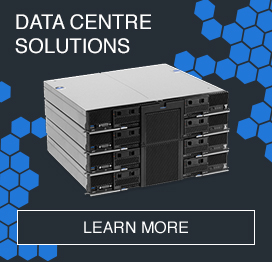What does Big Data mean for small business and can it help?
PUBLISHED: SEPTEMBER 2016
There is always some buzzword or term floating around to consume a small business owner’s attention. For the last few years, Big Data is one of those terms. In this post, I will define it and offer some practical ideas about how you can use it.
First, a definition: When someone uses the term “Big Data” they are generally talking about huge data sets that traditional software is ill equipped to handle. Historically, as in the last ten years, we are talking about researchers crunching extra large amounts of scientific, medical, or financial data.
Seeing unseen data
More often, however, people mean that there is simply unseen data, or a data iceberg, where you see only the surface of all this information. For a small business owner, this iceberg is most likely customer data that already resides in your customer relationship management (CRM) system, for instance, in Salesforce, Insightly, or Zoho. This data typically often resides in cloud-based applications, where you are not relying on your local machine to process the information, and thus you get reports from your software vendor.
Another example is Google Analytics where you can drill down into your website visitors, studying how they access and move through your site. That information can be viewed in a variety of ways and sliced and diced into usable formats to help you understand what pages and content are most appealing to, for instance, the mobile user (versus a desktop user). Google can show you what type of device is used to visit your page along with what browser or app.
Finding—and using—meaningful data
Recently, I talked about big data with Marc Prosser, co-founder and managing partner of Marc Waring Ventures, a firm that develops specialty internet properties for high-value audiences. The company’s portfolio of websites includes Fit Small Business, which provides product and service reviews for small business owners.
“For many small businesses, the most useful tools won’t involve ‘big data’ with thousands of points of information, but meaningful analysis of your own customers and transactions. You’ll need the technology to track that customer data. A small retailer, for example, might use an advanced point-of-sale (POS) system that enables data analysis of every transaction that takes place at your business.
“This can give you hard data on whether or not a [sales] special was successful, or what hours you are selling different types of goods [as in what hours are best for your business]. It is big data with a microscopic focus, and it enables small business owners to more effectively leverage the information that’s coming into their businesses. For most small businesses, that ability to hone in on your own customers is going to be more important than analyzing broader trends in the marketplace,” Waring said.
So, despite the buzz and hype surrounding “big data,” there are plenty of opportunities for small businesses to study and respond to information that they already have in their businesses, but may not be using. Take a closer look, as Waring points out, and see what information could help you earn more profits and grow your business
(This article first appeared http://shop.lenovo.com/us/en/landingpage/small-business/resources/download/big-data-really-big/)
















